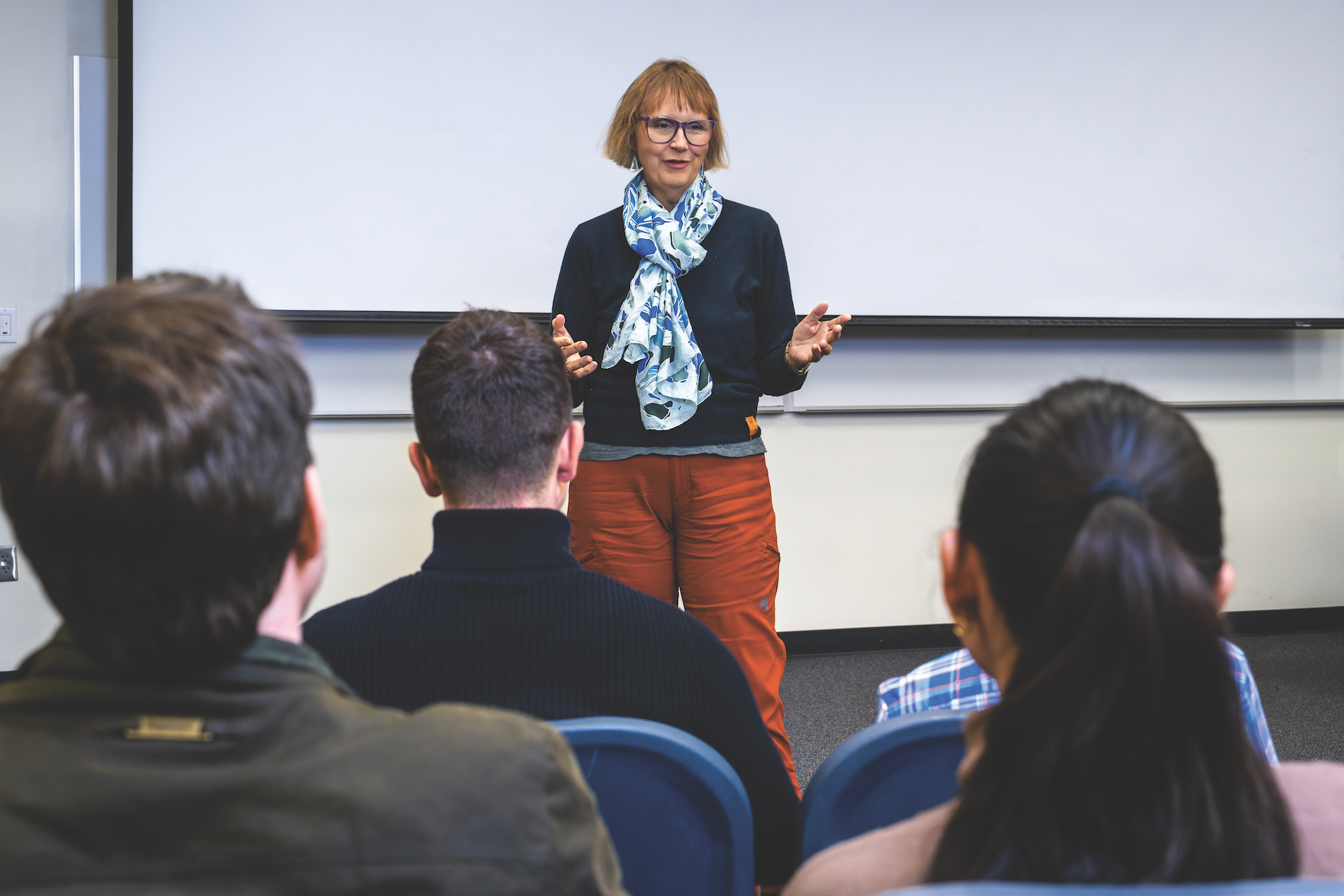
At about 11:30 a.m. on Tuesday, Feb. 11, Alice Smith was sitting at her desk inside her third-floor Shelby Center office, enjoying lunch before teaching. While eating a salad and drinking a can of sparkling water, she thought about that day’s lecture in INSY 6000: Engineering Economic Systems, scheduled from 12:30-1:45 p.m.
Just then, her computer chimed with an incoming email.
The subject line read: “Congratulations, you’ve been elected to the National Academy of Engineering.”
That was the moment it became official for the Joe W. Forehand Jr. Distinguished Professor in the Department of Industrial and Systems Engineering — she was now a member of the National Academy of Engineering (NAE) in its Class of 2025.
Smith is the first full-time engineering faculty member at Auburn University to be inducted into the NAE, which has provided independent, objective analysis and leadership since its founding in 1964.
Smith was recognized by her peers for her advancements in computational intelligence as applied to the modeling and optimization of complex systems. She is among 128 new members and 22 international members in the Class of 2025, bringing total U.S. membership to 2,487 and international membership to 336.
“It was pretty exciting,” Smith said. “I knew that Auburn hadn’t had a full-time person elected before, but it was still a huge shock. I also had to teach a class immediately after receiving the notification, so I was a little distracted that day.”
After class, she wrote to her nominator to express her appreciation for putting her in a position to be elected, calling the achievement the “crowning glory of my career.”
“For any engineer, unless they have realistic ambitions toward a Nobel Prize, this is one of the top honors,” Smith said.
Journey to academia
Smith’s journey into engineering began with a three-week engineering program at the University of Notre Dame, designed to introduce women to the field, which ignited her interest between her junior and senior years of high school.
Born and raised in St. Louis, Smith excelled academically, particularly in applied math. Although she enjoyed literature, history and art, she focused on engineering programs when applying to colleges. Ultimately, she chose Rice University, a prestigious private school in Houston known for its science and engineering specialization, and declared a major in civil engineering.
“I didn’t like science, which ruled out chemical engineering. Thermodynamics for mechanical engineering wasn’t appealing either,” Smith said. “Electrical engineering involved circuits, which I found uninteresting. Civil engineering appealed to me for its physical interpretation and emphasis on applied math.”
After earning a bachelor’s degree in civil engineering, Smith chose to enter the engineering industry rather than a graduate program.
“I was tired of being in school and poor, so I took a job with one of my summer internship companies — Southwestern Bell Corporation,” she said.
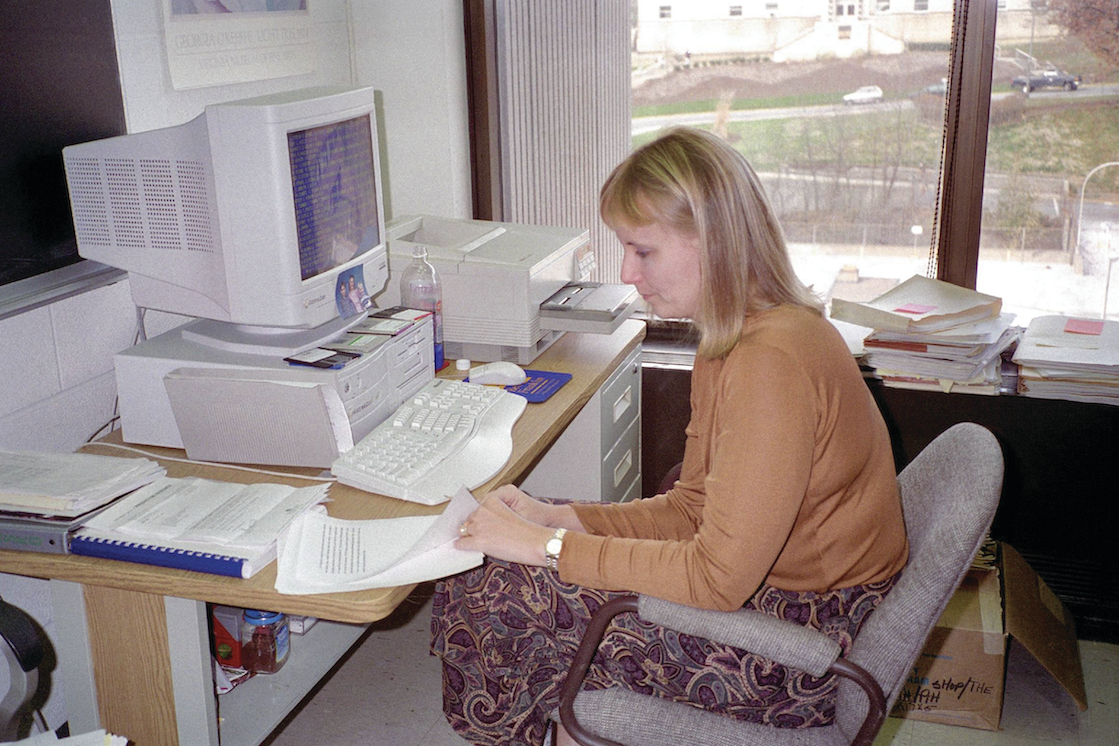
After earning an MBA at St. Louis University, she continued advancing in the engineering field, earning recognition as a member of the Institute of Electrical and Electronics Engineers (IEEE).
By the late 1980s, realizing the corporate world wasn’t for her, Smith quit her job and sought more freedom and creativity by enrolling in a doctoral program in engineering management and systems engineering at the Missouri University of Science and Technology.
“I felt aligned with engineering and felt like it was my calling,” Smith said. “I had already been involved with promoting engineering to underrepresented groups, especially women, working through the Society of Women Engineers.”
Industry experience sharpened her problem-solving skills and fueled her interest in emerging technologies such as artificial intelligence (AI). During her doctoral studies, she focused on a then-growing field — AI, specifically neural networks, now more commonly referred to as deep learning. Her research applied AI to quality control for production environments.
“It was a very novel topic in the late 1980s,” Smith said. “At the time, there were several people with more traditional backgrounds who said my topic wasn’t real, and there were no proofs or theories to support it.
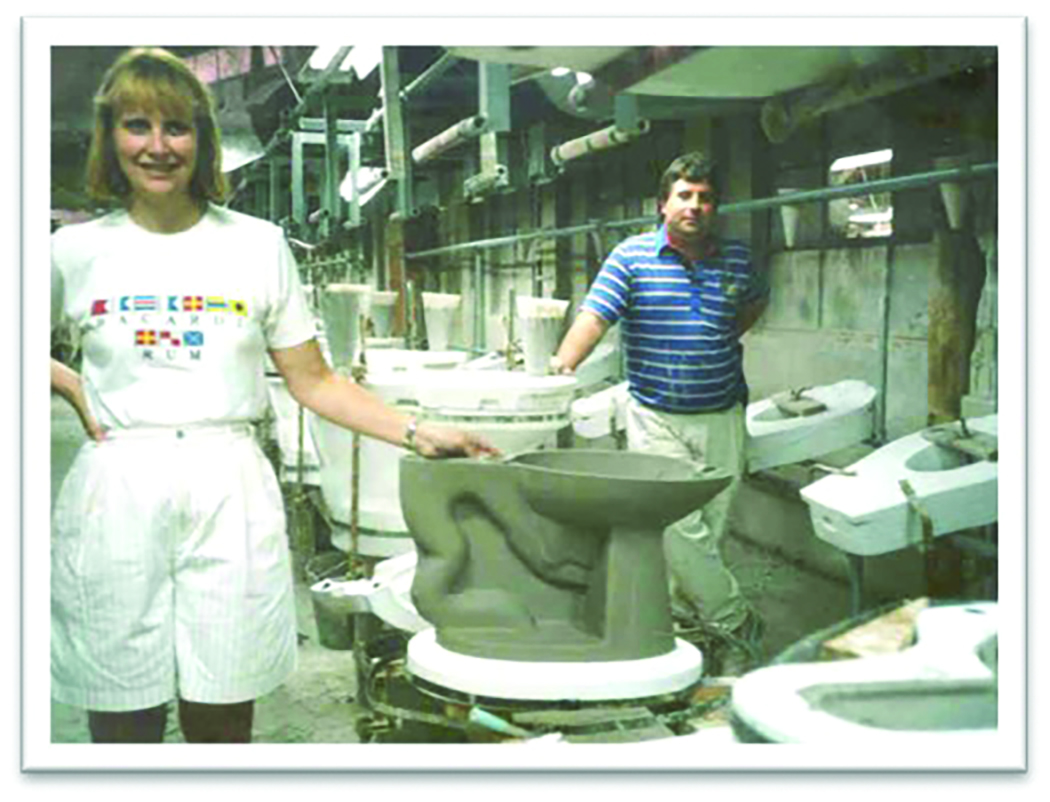
“I work on things that interest me. I don’t think about what’s fundable or what’s going to get the most attention. I think about how important it could be to solve real problems because that’s what I want to do,” she added.
After earning her doctoral degree in 1991, she was offered a position at the University of Pittsburgh in the industrial engineering department, becoming the first person hired there with expertise in AI.
From the Steel City to the Plains
After spending eight years in Pittsburgh, rising from assistant professor to associate professor and establishing herself in the academic and research community, Smith was ready for a new challenge — administration.
She applied for department chair positions at universities across the country and eventually secured an interview for Auburn University’s industrial and systems engineering department with Larry Benefield, former dean of engineering.
Pittsburgh was cold and snowy in March, while Auburn was in full bloom, making the campus an unforgettable first impression.
“The azaleas were blooming, the campus was beautiful and people treated me so well and with respect,” Smith said.
After meeting with faculty and administration, she was excited about the opportunity to revitalize the department. When Benefield extended an offer, she accepted, making history as Auburn’s first female engineering department chair.
Moving from the North to the South was a big transition, but Smith had only one last hurdle — convincing her three children. She sweetened the deal with the promise of a swimming pool, sealing the decision.
From 1999-2011, Smith served as department chair, leading the program through a period of significant growth in student enrollment, research funding and private donations.
After 12 years in administration, she faced another crossroads: continue climbing the administrative ladder to pursue a deanship elsewhere or return to faculty life at Auburn, focusing on research and teaching.
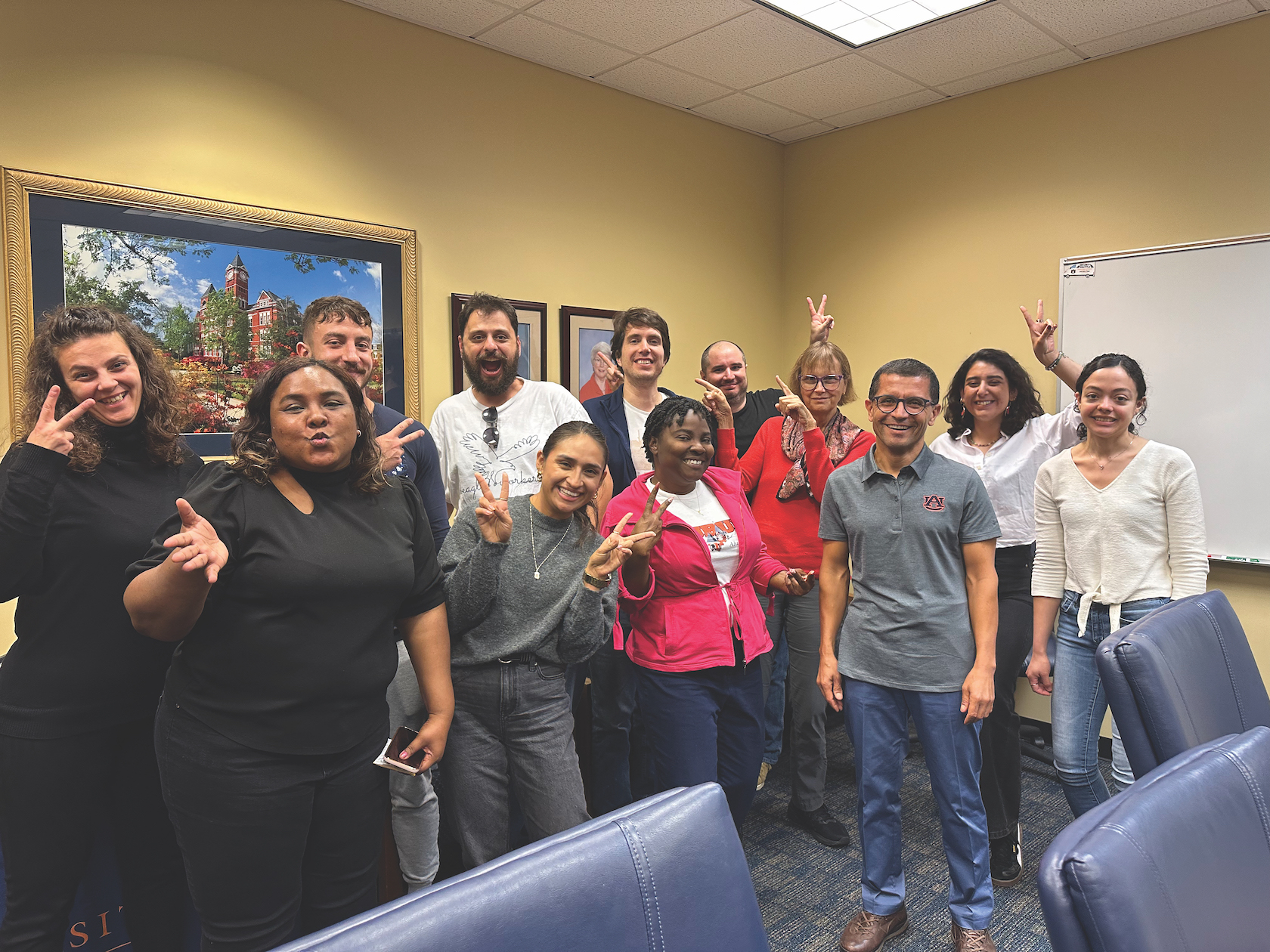
In the end, her passion for research and teaching won.
“When you become a dean, teaching and research become incredibly difficult. It was a hard decision because it defined the trajectory of the rest of my career,” Smith said. “I chose to return to the faculty because I love working with students and my colleagues. I enjoy posing research questions, writing papers and being in the classroom. I didn’t want to give those things up. I enjoyed administration, and I believe I did a good job overall, but I didn’t want it to be my life’s work.”
Research and teaching
Throughout her tenure, Smith has held several prestigious positions within the college, including the Joe W. Forehand Jr. Distinguished Professor, Joe W. Forehand/Accenture Distinguished Professor, W. Allen and Martha Reed Professor and the Philpott-Westpoint Stevens Professor.
She has also been a principal investigator on more than $12 million in sponsored research, securing funding from the Department of Defense, NASA, the Department of Homeland Security, the National Science Foundation and other government agencies.
Smith has also held visiting professorships and Fulbright Fellowships in Turkey, Colombia and Chile.
Beyond the NAE, Smith is a Life Fellow of IEEE, a Fellow of the Institute for Operations Research and Management Science (INFORMS) and the Institute of Industrial and Systems Engineers (IISE).
She is also a senior member of the Society of Women Engineers, a registered professional engineer and serves as an IEEE Distinguished Lecturer and INFORMS Official Speaker. In 2021, she was appointed as an INFORMS Diversity, Equity and Inclusion Ambassador.
She also returned to school to earn a bachelor’s degree in Spanish, graduating from Auburn in 2022.
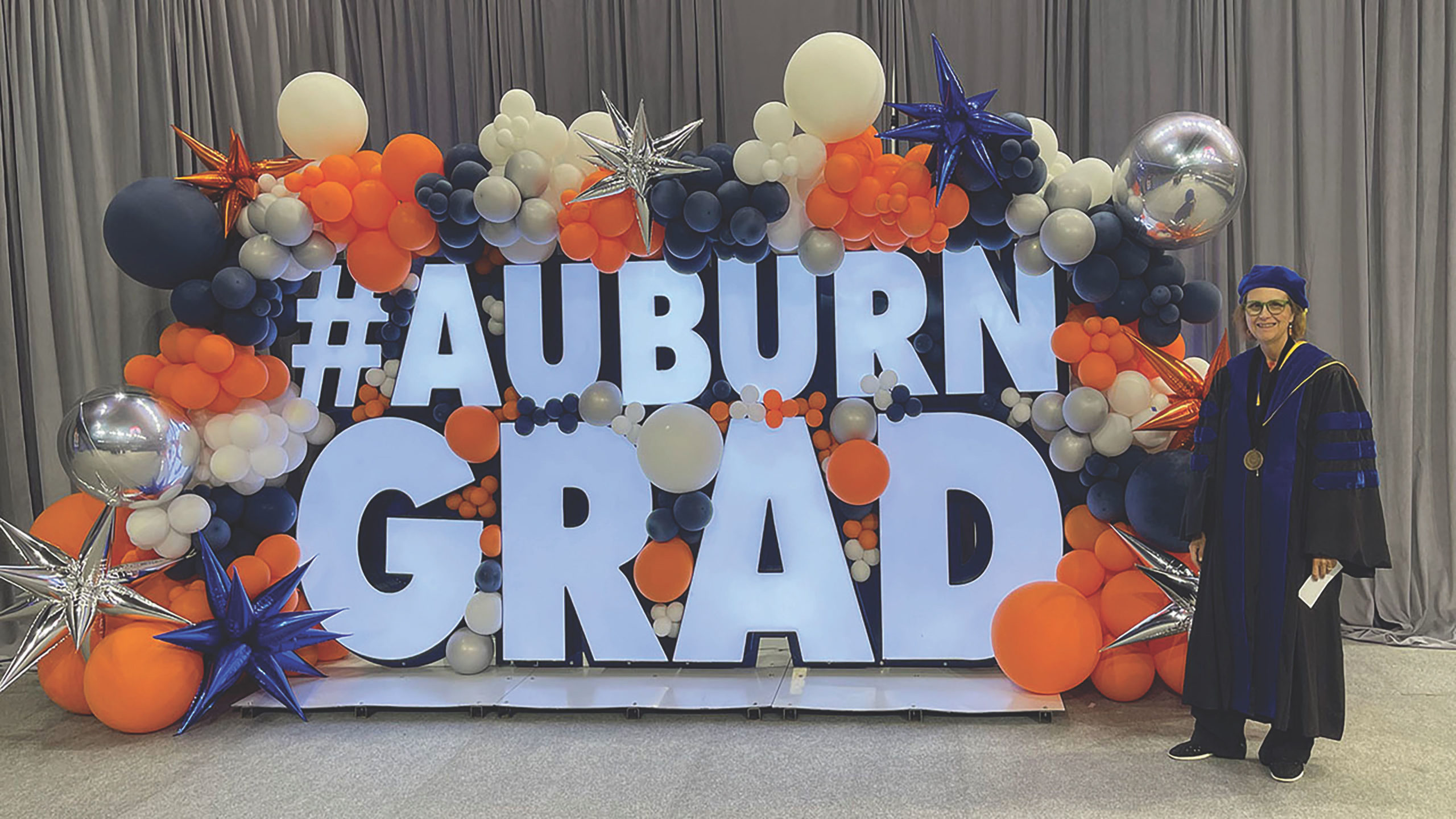
Peer support
When Smith was named chair in 1999, she was asked to set up an alumni council for the department.
When looking for qualified candidates to serve, Tim Cook, ’82 industrial engineering and Apple CEO, came up. He was vice president for worldwide operations at Apple then.
“We had a meeting with Tim and told him what we wanted to do, and he was eventually elected chair of the alumni board,” Smith said. “We met twice a year for a while and developed a friendship from professional interactions.”
Cook, who has known Smith for more than 20 years, said he couldn’t think of anyone more deserving of induction into the NAE.
“Dr. Smith’s brilliance and curiosity set an example for us all,” Cook said. “She is a leader who has pushed her field forward, motivating countless students to learn, innovate and challenge themselves. Her election to the National Academy of Engineering is a well-deserved recognition of an extraordinary career.”

Fred Glover, chief technology officer of Engagement Inc. and fellow NAE member familiar with Smith’s research, said Smith’s work ranks her among the elite in mathematical optimization and its real-world applications.
“Alice Smith is making valuable and exciting contributions in mathematical optimization, including serving as a principal investigator on projects for key government organizations, international groups and high-profile industrial partners,” he said. “Her election to the National Academy of Engineering is a fitting tribute to her exceptional range of accomplishments.”
Chris Roberts, president of Auburn University and former dean of engineering, praised Smith for her achievement.
“Being elected to the National Academy of Engineering is among the highest distinctions for an engineer,” Roberts said. “This is a significant achievement and recognition for Professor Smith, the Samuel Ginn College of Engineering and Auburn University. We couldn’t be more proud of her hard work and dedication, and she is a shining example of our exceptional faculty and the excellent research being conducted at Auburn University.”
Mario Eden, dean of engineering, echoed Roberts’ sentiments.
“Dr. Smith’s work on advancing computational intelligence as applied to modeling and optimization of complex systems ranks among the best in the world, so her election into the National Academy of Engineering comes as no surprise to those who work alongside her every day,” Eden said. “Her career has been filled with accomplishments as a researcher, author and educator, and she has been a catalyst in helping the Samuel Ginn College of Engineering continue its upward trajectory as one of the best in America.”
What’s next?
Being elected to NAE isn’t a culmination of a career for Smith. She wants to continue teaching, researching and contributing to her professional organizations.
“I don’t want to retire. I feel I’m a healthy person, and I love being in the classroom. I love what I do. I love the people here,” Smith said. “I feel like I have a lot left to give, and I want to spend more time mentoring younger faculty and doctoral students.”
She said NAE isn’t just an honor, but an active organization with smart and accomplished people.
“I want to be as involved as I can,” Smith said. “I want to continue to look for ways to enhance academia but also elevate Auburn University and the Department of Industrial and Systems Engineering in general.”